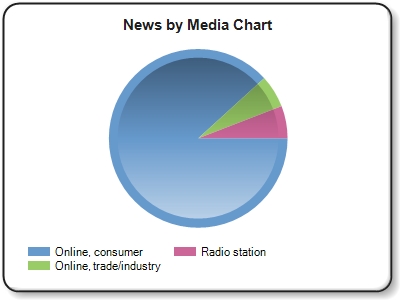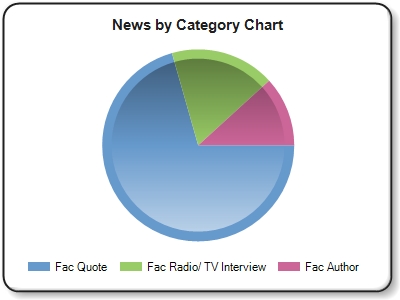Top Story
| American University Professors Comment on the 2018-2019 Government Shutdown |
| Chris Edelson, assistant professor of public affairs, wrote an article for The Conversation about actions Congress or the federal courts could take to overturn a national emergency, if President Trump declared one. Edelson wrote, “Because of the way the National Emergencies Act was drafted, Congress is better positioned to take action than the courts – assuming enough members are moved to act.” The article appeared in nine outlets, including WTOP-FM online. Edelson also spoke to The Christian Science Monitor about the shutdown. History Professor Allan Lichtman talked with POLITICO. Martin Wendelbo, research fellow in the School of Public Affairs, also wrote an article for The Conversation about the topic. Additionally, Washington College of Law Professors William Snape and Amanda Frost spoke to Bloomberg News and WUSA-9, respectively, about the shutdown. (1/11, 1/12, 1/15, 1/16, 1/17) |
Faculty Author
| Only Nuclear Energy Can Save the Planet |
| Joshua Goldstein, professor emeritus in the School of International Service, co-wrote an opinion article in The Wall Street Journal, advocating for the use of nuclear energy. Goldstein and his co-author wrote, “What the world needs is a carbon-free source of electricity that can be ramped up to massive scale very quickly and provide power reliably around the clock, regardless of weather conditions- all without expanding the total acreage devoted to electric generation. Nuclear power meets all of those requirements.” (1/11) |
Expertise
| U.S. Considering Allowing Lawsuits Over Cuba-Confiscated Properties |
| William LeoGrande, professor of public affairs, spoke to Reuters about a U.S. law that could allow U.S. citizens to sue foreign entities over property confiscated by the Cuban government. LeoGrande said, “It would cause an enormous legal mess, anger U.S. allies in Europe and Latin America, and probably result in a World Trade Organization case against the U.S.” The story appeared in 25 outlets, including U.S. News & World Report and The New York Times. (1/17) |
| Technology and Globalization in Higher Education |
| Cynthia Miller-Idriss, professor of Education and Sociology, joined Washington Post reporter Nick Anderson and U.S. Naval War College professor Thomas Nichols for a live discussion about how technology and globalization are changing higher education. Miller-Idriss said that technology and globalization have the potential democratize and expand the scope of higher education. (1/17) |
| Belarusian Model Who Offered to Trade Info on US Election Detained in Moscow |
| Keith Darden, associate professor in the School of International Service, spoke to CNN about Anastasia Vashukevich, a Belarusian model who claims to have information about Russian meddling in the 2016 elections. Darden said, “She is probably being interrogated. In particular, they're probably interested in where she has this information that she claims to have. And they'll probably keep her in cold storage until she produces it.” (1/17) |
| Black-Owned Businesses Carve Out Space in an Increasingly Gentrified D.C. |
| HuffPost spoke to Derek Hyra, director of the Metropolitan Policy Center, about how gentrification has affected black-owned businesses in D.C. Hyra said, “With this economic boom, the tax base in Washington, D.C., has grown, but so has racial inequality… There's immense inequality in the city.” (1/12) |
| Why Republicans Took So Long to Call Out Steve King's Racism |
| Vox spoke to Ibram X. Kendi, director of the Antiracist Research and Policy Center, about how Americans define racism, and what it means for the country. Kendi said, “I think people define racism in a way that exonerates them.” Kendi, a regular contributor to The Atlantic, also wrote an article for the outlet about racism and the day President Trump used an expletive to characterize African nations. (1/16, 1/13) |
| Neal Needs Steady Hand to Steer New Progressive Tax Writers |
| Managing Director of American University's Kogod Tax Policy Center Caroline Bruckner spoke to Bloomberg BNA about tax policy issues that may catch the eye of congressional leaders in 2019. Bruckner told BNA that progressives could latch onto issues such as the 2017 tax law's effects on women and minority-owned businesses. (1/14) |
| Big Tax Break for Business Owners at Risk as Shutdown Drags on |
| Don Williamson, executive director of the Kogod Tax Center, spoke to Bloomberg BNA about whether small business owners will be able to claim benefits from the Republican tax bill. Williamson said, “It's mid-January, and [business owners] have to start making some decisions. Small taxpayers are in a crunch.” (1/15) |
| Terror Attacks in 2019 Highlight Challenges Remain |
| Assistant Professor of Public Affairs David Malet spoke to Sinclair Broadcasting Group about rising acts of terrorism. Malet said, “We've spent a lot of years and a lot of money and a lot of blood fighting a war on terror but we're obviously not doing everything we can effectively if the numbers keep growing like this.” The interview aired on Sinclair affiliates, including WJLA. (1/17) |
| Security Council Eyes Warming's Effect on Stability |
| School of International Service Professor Ken Conca spoke to E&E News about what role the U.N Security Council should take in dealing with climate change. Conca said, “Countries are more comfortable with the council doing its own business if climate change relates to that business.” (1/17) |
| New Research Points to Evolutionary Advantage of Larger Hermit Crabs |
| Christopher Tudge, associate professor of biology, spoke to The Scientist Magazine to comment on new research about hermit crabs that shows how hermit crabs with a larger sex organ have an advantage in preventing shell theft for their own survival . Tudge, who did not participate in the research, said the data supports the researcher's novel hypothesis and questioned whether the idea could be applied to the study of other crustaceans. (1/16) |
| For Geoengineers, a Scientific Existential Crisis |
| Simon Nicholson, director of the Global Environmental Politics Program, spoke to Undark Magazine about geoengineering and the field of solar radiation management. Nicholson said, “SRM is peculiar, in the sense that most of those who study it do so with some amount of reluctance or ambivalence.” (1/16) |
| Sarah Silverman Is Latest Female Comic to Lose Her Show |
| Director of the Center for Media & Social Impact Caty Borum Chattoo spoke to KCBS Radio about the challenges faced by female comedians. Borum Chattoo said, “It's harder for women to make it in contemporary comedy. The pipeline by which comedians come up through the stand-up circuit, and then make their way onto television and eventually their own show—that pipeline is also controlled by men.” (1/12) |
|



